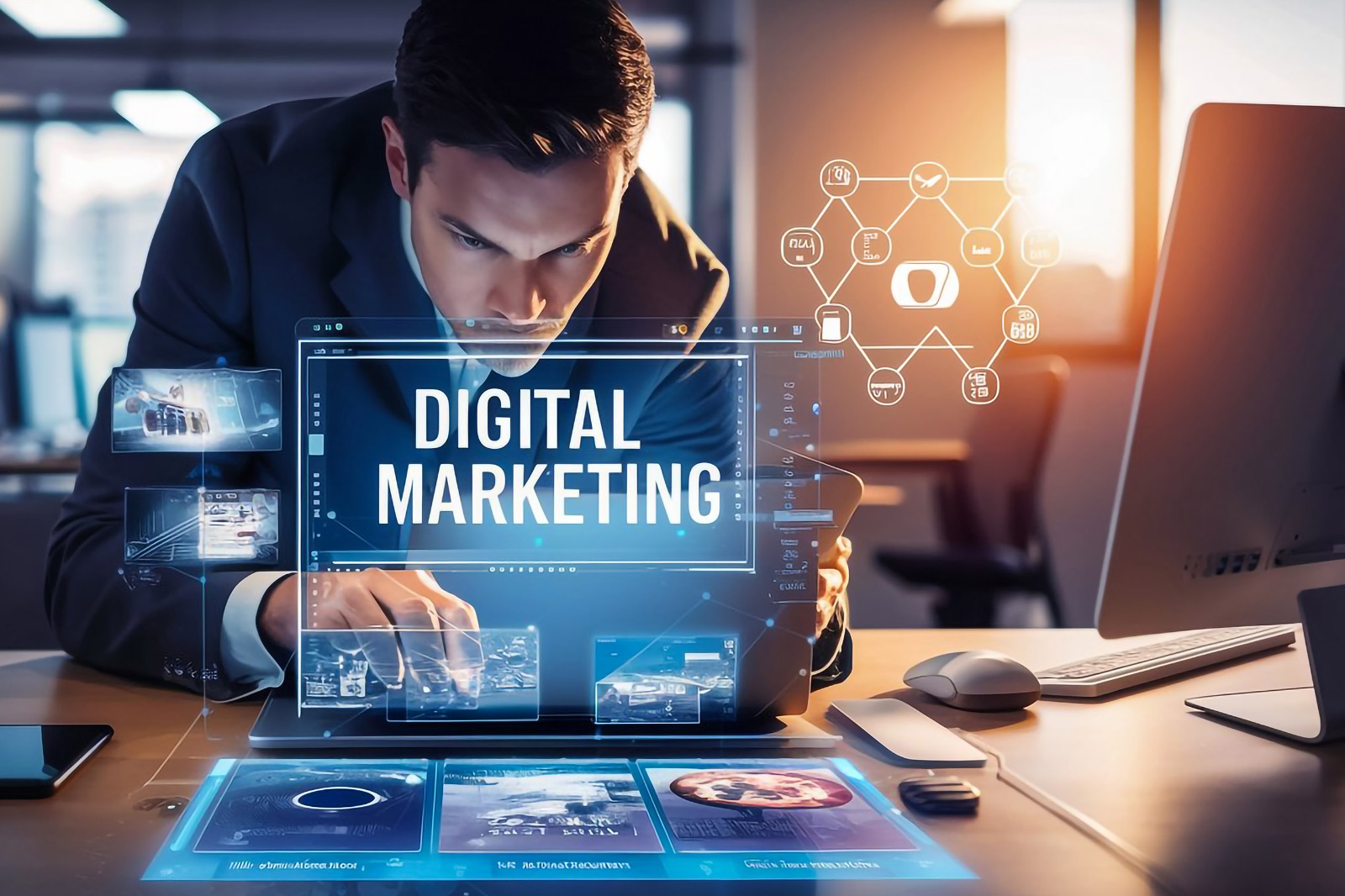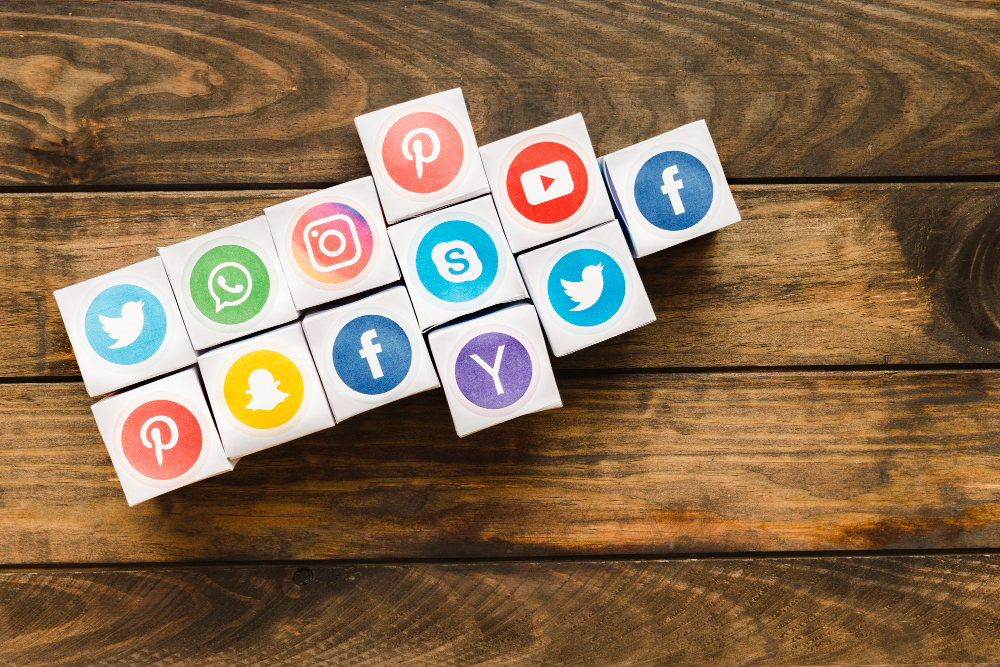
Consumer behavior is significantly shaped by cognitive biases, which affect how customers view particular brands, goods, and advertising. By being aware of these psychological tendencies, marketers can create ads that emotionally connect with their target market.
Marketing experts from a digital marketing company in Dubai and the UAE can gently influence consumer decisions and boost engagement by using cognitive biases, which range from confirmation bias to the influence of social proof and scarcity. Here, we explore the most prevalent cognitive biases in marketing, how they affect customer behavior, and how companies can use them to maximize sales and brand loyalty in a moral and practical way.
Understanding Cognitive Biases in Marketing
1) What are Cognitive Biases?
Cognitive biases are systematic patterns of making judgments that deviate from rationality. Heuristics are mental shortcuts that speed up decision-making but frequently result in errors in reasoning. Cognitive biases are crucial factors in marketing because they affect how customers perceive products, understand messaging, and decide what to buy. An example of anchoring bias in action is when a customer selects a more costly product over a less expensive one only because the greater price implies better quality.
2) Common Cognitive Biases in Marketing
Confirmation Bias:
The tendency of people to look for, understand, and remember information in ways that support their pre-existing beliefs is known as confirmation bias. This bias is frequently used in marketing by providing data that supports the existing preferences or opinions of the target audience. For example, a company that caters to eco-aware customers could emphasize its sustainable functions to bolster the customers’ favorable attitude toward the brand. A reputable and professional digital marketing agency Dubai and the UAE will be an expert in such practices. You can seek the best digital marketing services in Dubai just by finalizing on one of the best providers.
Availability Heuristic:
When evaluating a particular decision or topic, people tend to depend on the first instances that come to mind, a bias known as the availability heuristic. Marketers can influence the perceptions of their target audience by consistently presenting their product in a way that makes it the first thing a customer considers when thinking about a purchase. For instance, frequent advertising might lead to a mental shortcut whereby a customer selects a brand based on its top in mind rather than its objectively better.
Anchoring Bias:
Anchoring bias occurs when people make decisions primarily based on the first fact they encounter, or the “anchor.” Price anchoring is a popular marketing tactic in which companies establish a starting high price point and then use discounts or other offers to make them seem even more attractive. When a product is originally priced at $100 and then discounted to $70, for instance, the consumer may still believe they are getting a better deal even when the product’s true value is closer to $70.
3) How Cognitive Biases Influence Consumer Behavior
By skewing consumers’ behavior, filtering the information they pay attention to, and affecting their emotional responses to marketing messages, cognitive biases have a substantial impact on consumer behavior. Confirmation bias happens when a buyer chooses a brand based only on the confirmation of their preconceived notion that it is more dependable. This can happen even when objective comparisons indicate otherwise. Similarly, a consumer may feel that a product is more attractive when it is perceived as scarce or in great demand, which can activate the scarcity bias and encourage a purchase.
So, cognitive biases facilitate decision-making, but they also frequently result in irrational choices that are motivated more by emotions than by logic. By being aware of these biases, marketers can create ads that play to the tendencies of their target audience and nudge behavior in their favor. You can seek the professional assistance of a digital marketing company in Dubai and the UAE. Research the best providers of digital marketing services in Dubai and invest your confidence in them. You’ll receive outcomes that surpass your expectations.
Leveraging Cognitive Biases for Effective Marketing
1) Using Cognitive Biases to Persuade Consumers
Playing on cognitive biases is one of the best marketing techniques for influencing consumer behavior. By tailoring their messaging to the values and beliefs of their target audience, marketers can exploit confirmation bias. For example, a brand should highlight eco-friendly actions in its advertising if it knows that its target audience appreciates sustainability. A digital marketing agency Dubai or the UAE is usually helpful for these challenging tasks.
You can use anchoring to provide high standards and then appear to deliver a lot. An illustration of this would be to put a discounted product next to a luxury one, making the discounted choice appear like a better deal overall. Brands may also benefit from the availability heuristic by maintaining a steady stream of advertising and establishing a strong brand awareness in order to guarantee that they are the first brand that consumers think of when they are ready to make a purchase.
2) The Power of Scarcity and Urgency
Scarcity and urgency are effective marketing strategies because they appeal to consumers’ cognitive bias known as FOMO, the feeling that they will miss out on a desirable opportunity if they don’t act quickly. Products with labels such as “only a few left in stock” or limited-time specials or flash sales can cause this bias. Because scarcity makes an item seem more expensive or desired just because it is difficult to attain, it also creates a sense of exclusivity and encourages impulsive purchases.
Similar to this, urgency forces customers to respond quickly. For instance, a countdown timer on a website offering a deal can encourage customers to act right away rather than hesitate and possibly lose out. Make sure your digital marketing company in Dubai and the UAE uses this technique if your products or services need them for the best and massive sales.
3) Social Proof and Herd Mentality
The cognitive bias that leads people to believe that other people’s actions are correct is the source of social proof and herd mentality. In the marketing industry, where consumers often follow the herd when making decisions, this bias is particularly useful. Through user-generated content, influencer endorsements, reviews, and testimonials, brands take advantage of this bias. Customers are more likely to believe in a product and use it themselves if they observe a large number of other people using it or giving it positive reviews.
A consumer’s selection may be influenced by various factors, such as the presence of “Best Seller” tags, customer reviews, or a substantial following on social media. Because of the herd mentality, people tend to choose what other people are doing because they think it’s safer or better.
Avoiding Cognitive Biases in Marketing Decisions
1) Recognizing and Overcoming Cognitive Biases
Marketers themselves are not immune to the influence of biases while making strategic decisions, even though taking advantage of cognitive biases can be beneficial in consumer marketing. Recognizing these biases and how they affect the decision-making process is one strategy to counteract this. Marketers may be susceptible to confirmation bias, for instance, if they ignore data that implies a need for change and instead only depend on data that validates their present strategy.
A dedication to critical thinking and unbiased analysis will be needed to overcome this. Marketers should routinely challenge their presumptions, look for contrary information, and support a range of viewpoints during brainstorming sessions.
2) Data-Driven Decision Making
Making decisions based on data is an effective strategy for mitigating the impact of cognitive bias. Marketers can use data analytics to make well-informed decisions based on objective facts, as opposed to depending on subjective judgments or gut reactions. A/B testing, for instance, can assist in identifying the best marketing strategy by comparing various methods based on real consumer behavior rather than assumptions.
By employing predictive models, evaluating campaign effectiveness, and analyzing customer data, marketers may steer clear of biases and ensure that real-time, correct information guides their decisions.
3) Ethical Considerations in Using Cognitive Biases
Marketing strategies that make use of cognitive biases give rise to ethical considerations, particularly when these strategies coerce customers into making decisions that may not be optimal for them. For instance, posting fraudulent reviews to evoke social proof or employing scarcity techniques to generate a false sense of urgency can undermine customer confidence and negatively impact a brand’s reputation over time.
Marketers should prioritize honesty and transparency in order to leverage cognitive biases in an ethical manner. For example, real limitations, not made-up ones, should be the foundation of urgency and scarcity techniques. Authentic testimonials and reviews are a better form of social evidence than made-up endorsements. Brands may cultivate trust and enduring consumer loyalty by upholding ethical standards. Find the best and most reliable digital marketing agency Dubai and the UAE for the best results.













